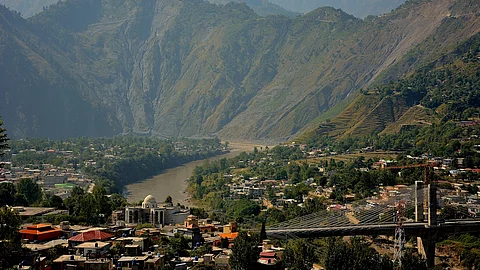

The High Court in Pakistan-administered Jammu and Kashmir (PaJK) recently abolished the quota system and ordered that all future appointments must be made based on open merit. Justice Sardar Muhammad Ijaz Khan ruled on petitions filed in 2016.
The petitions had demanded the abolition of the 19 per cent quota for refugees who hailed from the Kashmir Valley and Jammu but were now living in Pakistan. Later, petitions were also filed seeking open appointments on merit in the advertisement of various posts. The court declared the petitions seeking abolition of the refugee quota inadmissible but ruled that the district quotas for all posts with and without civil service status and for admission to universities and medical colleges be abolished, and that appointments and admissions be made solely on merit in future.
At that time, when the quotes were set, the territory consisted of three districts — Muzaffarabad, Poonch and Mirpur. The territory now consists of 10 districts. Each district was allocated a quota of 25 per cent, while another 25 per cent was reserved for refugees from the Jammu and Kashmir Valley living in Pakistan. In 1990, this quota was revised: Six per cent of the refugee quota was specifically earmarked for those who had migrated to PaJK from across the LoC post-1989, after the onset of armed movement. Their number today is around 45,000.
The quota system had been decided by the first elected cabinet of PaJK, the then Council of Ministers, and was later retained in the provisions of the Interim Constitution Act of 1974. The decision on open merit is welcomed by some quarters, but at the same time, criticised.
Supporters argue that appointments are now based on merit and that the administration of the state is run by competent people. Critics, on the other hand, believe that the decision deprives people in the backward areas of the right to employment and education, and criticise the fact that refugees from the Jammu and Kashmir Valley who came from across the LoC, currently living in Pakistan, continue to have access to employment in Pakistan and then also claim quote in PaJK.
Opponents of the refugee quota argue that refugees who have settled in Pakistan are now fully recognised citizens, with full civil rights, under the Pakistan Citizenship Act of 1951 and should therefore no longer be entitled to employment in PaJK.
Another important reason cited is that the Interim Constitution Act of 1974 clearly defines the geography of PaJK and also confirms that the 1927 State Territory Act enacted by Dogra ruler Maharaja Hari Singh still applies to this region.
Many are of the opinion that the refugees settled in Pakistan should not be offered jobs, but more facilities should be provided to the 1989 migrants living in PaJK, so that their quality of life can improve.
A second important reason for criticism is the lack of standardised educational facilities in the region. Current education statistics show that more than 60 per cent of students through middle school in PaJK are enrolled in private schools. Even the children of government schoolteachers attend private institutions, which is a sign of a lack of trust in the public education system.
Under these circumstances, children in remote areas — especially near the Line of Control — do not have the same access to educational facilities as children in urban areas. If quotas for higher education are abolished and admission is based solely on merit, most students from backward areas will be denied access to universities, and these areas will sink further into underdevelopment. Pakistani-administered Jammu and Kashmir, private schools and colleges are generally preferred up to the level of matriculation and higher secondary school, i.e., the 12th grade.
Similarly, a few districts will gain supremacy if non-district posts are filled solely on merit and without district quotas. Another serious disadvantage of the open merit system is political interference: under an open merit system, if all vacancies in a ministry are filled by a selection committee working under the control of that minister of the department, it is unrealistic to expect genuine merit in recruitment. A minister will exercise complete control over appointments in his or her ministry.
The main reason for this is that in PaJK, apart from the education sector, there is little chance of transparency in appointments that are not made by a board. These appointments are not made by a third party or a committee or commission, but by a selection committee that reports to the minister concerned.
In PaJK, appointments to non-gazetted posts in the education sector are made through the NTS (National Testing Service), while in other sectors no third-party mechanism exists for non-gazetted appointments, these remain under the authority of the concerned minister.
While appointments to all gazetted posts are made through the Public Service Commission, where a certain degree of transparency is ensured.
That is why open merit for non-gazetted posts is being opposed, while for gazetted posts it is supported, so that the system of the region can continue to function in a better way.
However, if people in PaJK do not have equal educational opportunities and a transparent appointment system, the open merit system may prove to be a disaster. The system will lead to further imbalances as those who have access to quality education and those who live in the cities will fill all the positions, while candidates from rural areas will be left in the lurch.
Have you liked the news article?